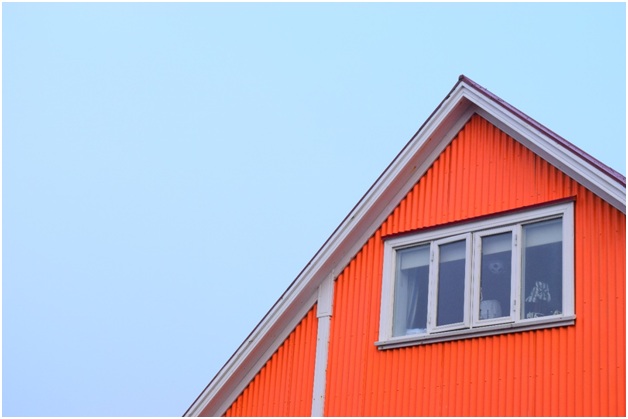Have you ever wondered what happens if you just don’t clean your gutters? The answer is unsurprising: you’ll end up with clogged gutters. What may surprise you is the long list of damages that clogged gutters can cause to your home from top to bottom. When your gutters aren’t flowing freely, water isn’t properly directed away from your home. This causes the gutters to overflow and results in water damage, mold, and even structural issues in your home. Here are 8 Reasons You Must Clean Your Gutters.
Table of Contents
8 Problems Caused by Clogged Gutters
1. Roof Damages
When your gutter guard system becomes filled with leaves, dirt, and other debris, it causes standing water to collect and have nowhere to go. This constant presence of water can damage your roof in many ways. Roof shingles which are in constant contact with water will deteriorate at a faster rate than the rest, weakening the roof. As time goes on, water will seep past the constantly saturated shingles and penetrate your roof deck. This will cause issues with wet insulation, a wet attic, and roof leaks.
Not cleaning out your gutters can also make it much more likely for ice dams to form on your roof during the winter. Ice dams loosen shingles and can cause extensive roof leaks and water damage inside your home.
2. Soffit & Fascia Problems
Fasciae are the long boards that run along the lower edges of your roof. Soffits connect your roof overhang and the side of the building. These elements of your roof help provide air circulation in the attic, prevent water leaks, and stop pests from entering your home.
When rain gutters are clogged, the weight of the standing water causes them to sag which damages the soffit and fascia of your home. The shifting of your gutters can cause these elements to crack while the standing water may rot wooden fascia boards.
3. Foundation Damages
When water from clogged gutters flows directly to the ground below, it can cause considerable issues to your foundation. The overflowing water increases the groundwater levels outside of the foundation, which may cause it to shift when the soil becomes too saturated. Shifting foundation results in cracks, buckling, and damage to the structural integrity of the home over time.
4. Flooded Basements
Related to foundation damages, water from overflowing gutters can cause your basement to flood. As groundwater levels rise, more hydrostatic pressure is exerted on the foundation of your home. There can be so much pressure that it causes water to seep through the foundation walls. When there are cracks in the foundation, it can cause an entire flood. When you don’t clean your gutters and heavy rains or snow come through, you can end up battling with basement flooding.
5. Landscape Damage
Water flowing directly down the side of your home and to the ground below can cause landscaping to wash away. The constant flow can even destroy flower beds, shrubs, or small trees and cause a visible rut next to your foundation. These landscaping damages will also make it more likely for foundation issues and basement flooding over time, as water is not being navigated away from the home.
6. Insects & Pests
The stagnant water in blocked gutters can be somewhat of a haven for mosquitos, flies, termites, birds, or squirrels. The decaying matter in the filled gutters will attract these pests in masses. Termites and ants may also be attracted to the debris. As weather cools, it likely for these pests to try and find their way into your home and cause an infestation.
7. Water Damage
We may have already covered water damage with roof leaks, but dirty gutters can cause even more water damage to your home. When water flows down the siding of your home, it can eventually get behind it and seep into the living spaces of your home. Water may also damage window frames, breaking seals and causing water to leak into your home. When water flows where it isn’t designed to, you’ll likely need to call a company to get help with water damage.
8. Mold
Those in the water damage restoration industry have a saying, “Where there is water damage, there is mold!” Of course, this isn’t always true, but the two are intertwined. Mold spores thrive on moisture, so when water is introduced in a dry area and isn’t addressed or dried out in a timely manner it can produce mold growth.
It is a general consensus in the mold remediationindustry that mold can begin to grow in as little as 48 hours after flooding or water damage. This means that clogged gutters can lead to mold throughout your entire home when issues are not noticed or handled promptly.
Clean Your Gutters Every Spring and Fall
These are the times of year when the most debris pile up in your gutters, especially in the fall as leaves fall from the trees. Gutter cleaning can be done yourself or by a professional. All you should need to clean your gutters yourself is an extension ladder, gloves, a small hand shovel, and a hose. Be sure to have someone outside when you’re on a ladder for safety.
If you find your gutters are clogged, it may be easier to hire a professional to clean them out depending on where the clog is located. It may be a challenge to remove a clog from the downspouts of you gutters without the proper tools. A professional gutter cleaning may be more effective at getting out all debris and prevent gutters from clogging again soon.



















